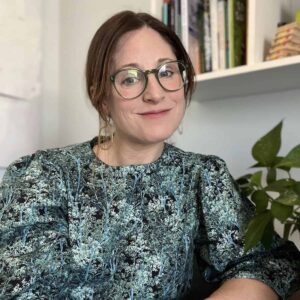I learned early in my career as a child development therapist that the parent is the expert about their child. When a child and parent came into my office for visual spatial/cognitive therapy, or when I went to homes to provide DIR/Floortime, I thought about this parent-as-expert concept. I’ve always been drawn to supporting parents and the parent-child relationship. But it wasn’t until I became a parent of a child with special needs that I truly internalized it.How could the parent be the expert? The parent was asking me questions. These are questions that I was prepared to answer and loved to lead parents in thinking through. Doesn’t that make me the expert?
The Short Answer is Yes. And the Long Answer is No.
It does not make me the expert, because we are dealing with the dynamic nature of a child’s development. I have no doubt that I have contributed to the development for many children that I was privileged to work with, but I believe this was in great part due to the fact that my expertise was informing, or guiding, parents’ thinking or actions as they left the office and continued on with their day.As a therapist, my contribution was only one piece, one cog in the giant wheel of a developing child. As a parent of a child with a diagnosis of cerebral palsy, this concept truly came to life.The parent was pushing the cart forward. The parent was the one that needed to put the brace on everyday, to navigate getting out of the grocery store (with groceries!?) amidst a meltdown, to find times to stretch those muscles or do those exercises, to remember the prescribed helpful songs and rhymes, to watch carefully and closely while their child navigates the playground hoping that they are prepared enough to engage positively with other kids, and to hold it all together to ensure that everyone is fed, rested, and happy.
Sounds So Simple
As a parent, I am not only the expert in how to cut my child’s fingernails successfully (no small feat), but I am an expert in preparing for a therapy appointment that no one wants to go to. I am an expert in remembering our goals for different disciplines. I do not remember ALL the goals, but I remember the goals that are meaningful to me and to my child.My child cannot be compartmentalized into specific disciplines, because they are all interconnected and it’s messy. Life is messy. I am terrible at ‘homework.’ I am flustered and last minute (or late) to many appointments, and my kids almost always have food on some part of their body. I often feel like I want clarity, so I look to the experts for help and guidance.But do not confuse my request for help – nor my worn out jeans, my forgotten homework, or my unintentional tears – as weakness or apathy. Do not confuse my challenge in understanding the proper processes or appropriate jargon as my being incapable or inept. I think you’ll learn that I’m a fast learner who is intensely motivated by my child. And just as my child is a dynamic being, so am I, with skills and experience that are not captured when I am labeled only as ‘parent.’
Make No Mistake
I take great pride in being a parent! But just as I ask others to see my child for all that he is, I too have that request. I’ve discovered how important it is to value my own expertise as much as I value others. As a parent, I am an expert in my child. As a professional, I am an expert in a field that helps many different children, but with few exceptions I can never be more expert in a child than their parent.So to our therapists, our clinicians, our teachers, our providers, I look to you for your expertise and I ask that you look to me for mine. Thank you for being on our team – and thank you for helping me with the knowledge and resources I need to support my child and our family.



